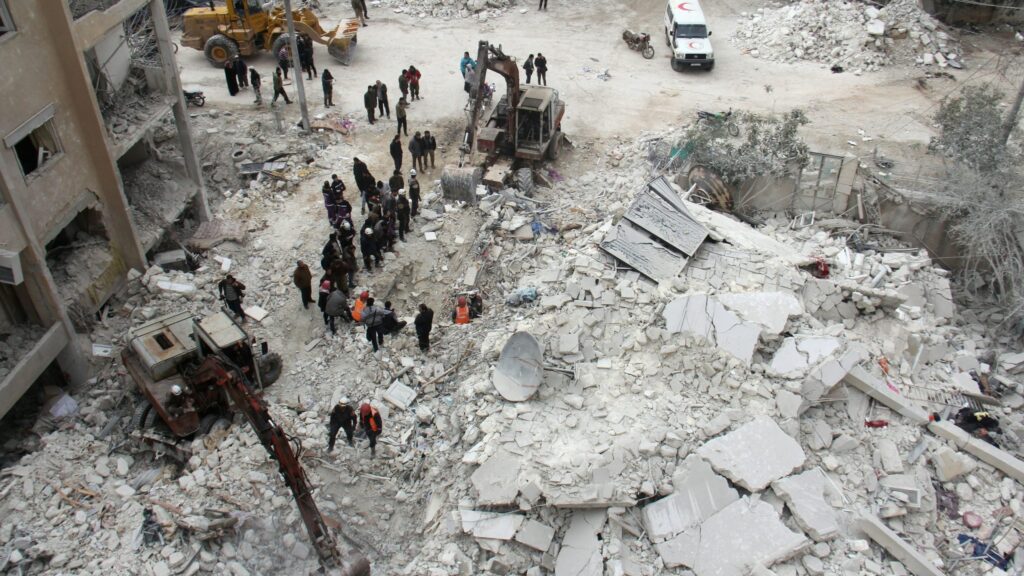
A ground operation in Idleb remains unlikely, even though the region will probably witness breakthroughs in 2022, according to Baladi News.
Russian Air Force warplanes and regime forces have been intensively bombing towns and villages in Idleb and Hama for a week, mainly targeting vital installations in the region, raising speculation of an incoming ground operation.
Regarding the future of the northwestern region of Syria in light of the escalation by the regime and Russia, Omran Center for Studies researcher, Ali al-Abd al-Majid, predicted that the year 2022 will carry some partial breakthroughs in the Syrian issue. These breakthroughs would be related to the opening of crossings, rehabilitation, and revitalization of international roads.
Regarding the expectations of launching a ground military operation by the regime forces and Iranian militias on Idleb, Majid indicated in his interview with Baladi News that there is no evidence to support this hypothesis.
He explained that there are several reasons hindering the military operation for the regime, namely the presence of a unified military and administrative body in Idleb, and the position of Turkish forces along the geographical area in Idleb, especially Jabal Zawiya — in addition to the narrow area extending from Jabal Zawiya in the south to the Turkish border, which is estimated at 40 kilometers. The Russian shelling and the regime’s bombing of Idleb increased popular cohesion among the inhabitants of the area, in his opinion.
Turkey would not allow any military action on Idleb, he said, because Idleb was the subject of considerable attention and deployment of Turkish military forces. They were Turkey’s important pillar and national security, on the one hand, and on the other hand, Turkey could not bear under its current economic situation a new wave of displacement that threatens the economic situation or future electoral entitlements.
Intense pressure
Wael Alwan, a researcher at the Jusoor Center for Studies, predicted that Russia would continue to use the escalation on the ground in Idleb as a means of putting intense pressure on the opposition, and thus on Turkey which supports and guarantees the Syrian opposition. This comes in order to obtain political gains, and others related to easing the effects of sanctions on the regime.
“The ceasefire is stable with understandings between Turkey and Russia and a general regional and international orientation that prevents any large-scale battles in Syria in general. Therefore, it is unlikely -at least in the first half of 2022- that there will be battles in Idleb,” Alwan said. He noted that the infiltration attempts, the clashes limited in time and space, and the bombardment as a tool for political pressure are expected to continue.
“One of Russia’s main objectives is to destabilize areas beyond the regime’s control as a model that shows imbalance and chaos in the regime-controlled areas. One of the reasons for the continued escalation is the persistence of disputed issues between Turkey and Russia that are transferred in every negotiating meeting between the two sides,” he said.
“Ankara has announced that it will not allow the regime’s military progress. After the Turkish intervention in the first quarter of 2020 and the regime’s suspension through direct confrontations, the reality of battles on the ground has changed, thus stabilizing the Syrian map for more than 22 months,” Awan said. He added that “the Turkish position remains unchanged and prevents, through direct military presence, any violation of the Moscow Agreement in March 2020.”
